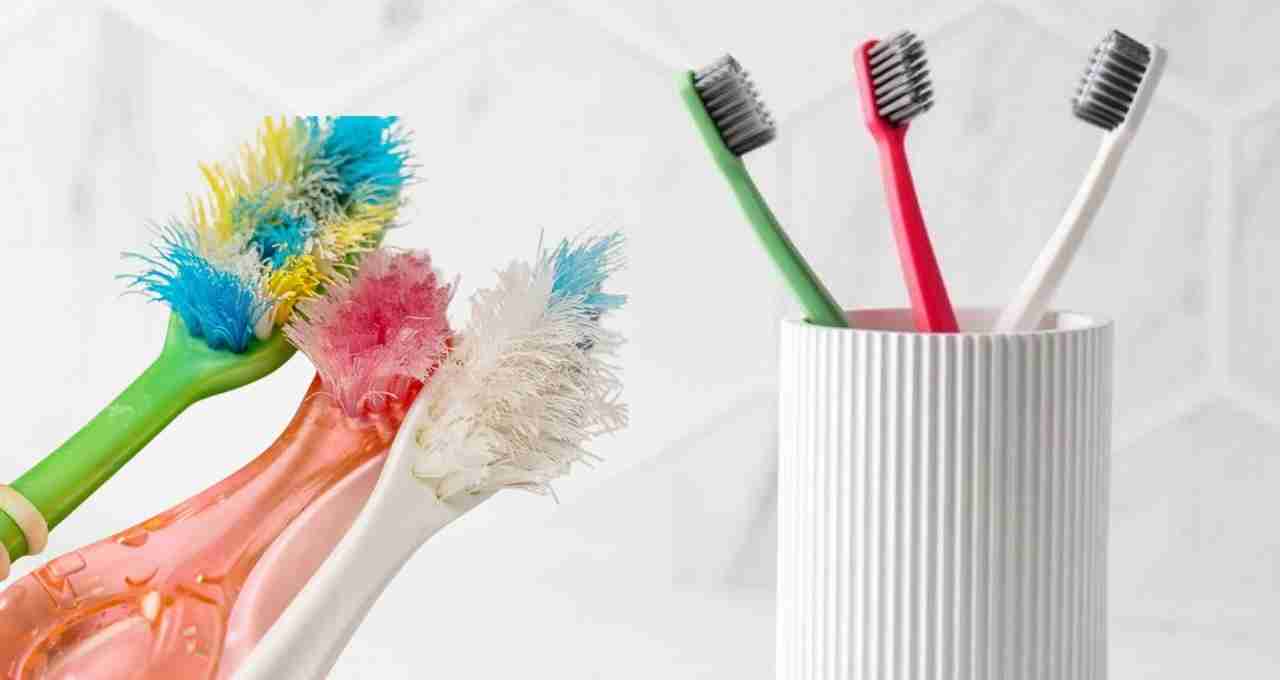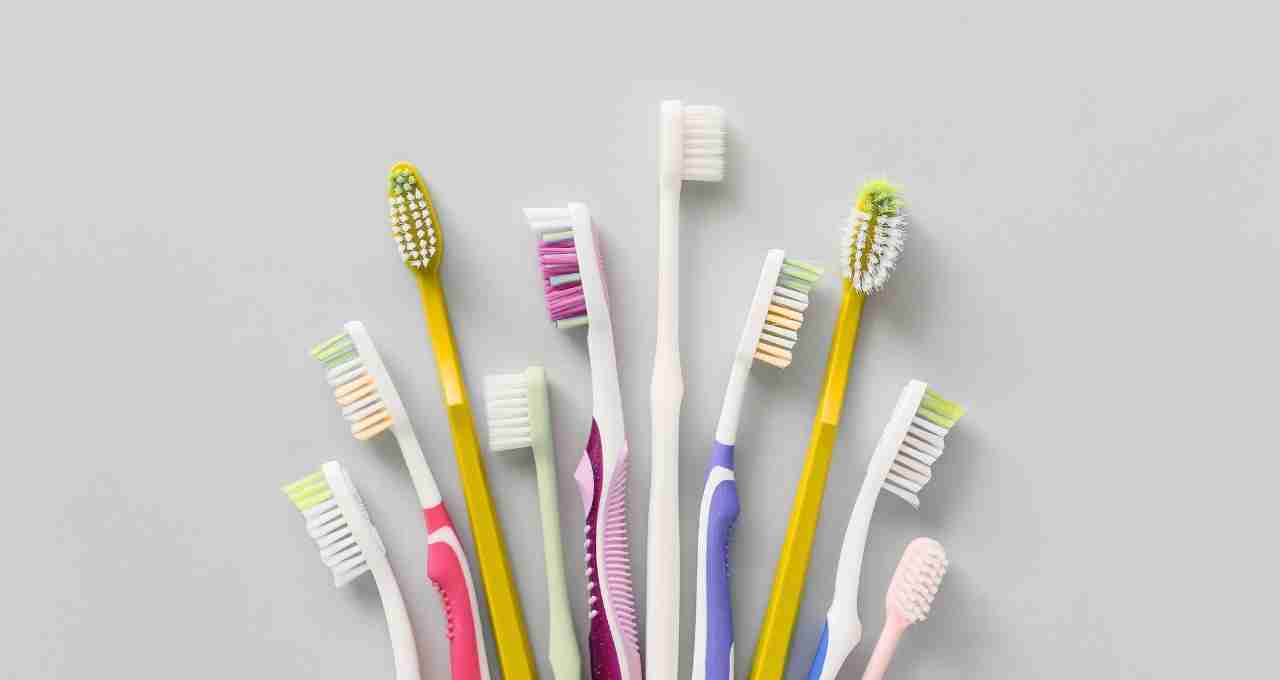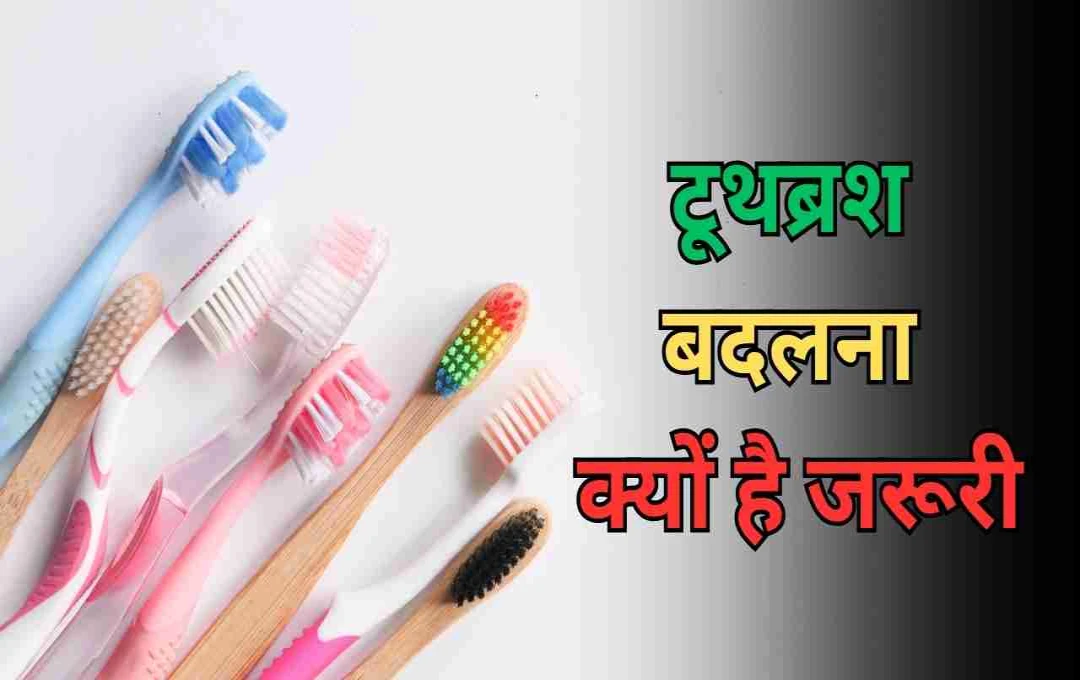Dental experts say it's essential to replace your toothbrush every 3-4 months. Using the same brush for an extended period allows bacteria to accumulate, increasing the risk of gum infection, bad breath, and cavities. Old bristles also fail to clean teeth properly and can damage gums.
Oral Health tips: We all use a toothbrush daily to clean our teeth, but if it's not replaced on time, it can prove dangerous. According to dental experts, it is necessary to use a new toothbrush every 3-4 months. An old brush becomes a breeding ground for bacteria and viruses, which can lead to problems like gum infection, mouth odor, and tooth decay. Experts advise changing your toothbrush even after a flu or cold to prevent the infection from recurring.
Why is an Old Toothbrush Dangerous?

A brush used for a long time becomes a breeding ground for bacteria and viruses. While brushing, small food particles, saliva, and mucus get stuck in the bristles. Gradually, bacteria start to grow on them. When you use such a brush, the same bacteria go back into your mouth. This can lead to problems like gum infections, tooth decay, and bad breath.
Understand the Signs from the Condition of the Bristles
An old toothbrush not only becomes a haven for dirt but also its bristles start to deteriorate. Over time, they bend, break, or become too stiff. Such bristles cannot clean teeth effectively. Sometimes, they can also injure the gums. This problem can be more dangerous in children and the elderly because their gums are already sensitive.
When to Know That It's Time to Change Your Toothbrush
If your brush is more than three to four months old, it should be replaced immediately. Besides this, there are some other signs that indicate it's time to buy a new brush, such as the bristles bending, the toothbrush smelling bad, or the mouth not feeling clean even after brushing.
Don't Use an Old Brush After a Cold or Flu
Doctors say that if you have recently had the flu, a cold, or a throat infection, the toothbrush used at that time should be discarded. This is because viruses and bacteria can stick to the brush during the illness. If you reuse the same brush, the illness may return.
How to Take Care of Your Toothbrush

A good brush will only be effective if it is properly cared for. It is important to wash and dry the brush thoroughly after brushing. Bacteria grow quickly on a wet toothbrush. Always keep the brush upright and try to keep it covered to prevent dust and germs from accumulating.
More Attention Needed for Children's Toothbrushes
Children often start chewing on the brush, which causes the bristles to deteriorate quickly. Sometimes children also drop the brush here and there, causing dust and germs to stick to it. Therefore, it is extremely important to change and clean children's toothbrushes regularly.
Just Changing the Brush is Not Enough
Oral health means more than just brushing. Proper brushing technique, the use of floss, and a balanced diet are equally important. If you regularly change your brush but do not clean your teeth properly, problems can still persist.
According to dental experts, the strength of the bristles starts to decrease every three to four months. Teeth cleaning is no longer as effective. In addition, a large amount of bacteria accumulates on the brush by this time. This is why international dental associations also set the standard that toothbrushes should be changed every 90 to 120 days.















